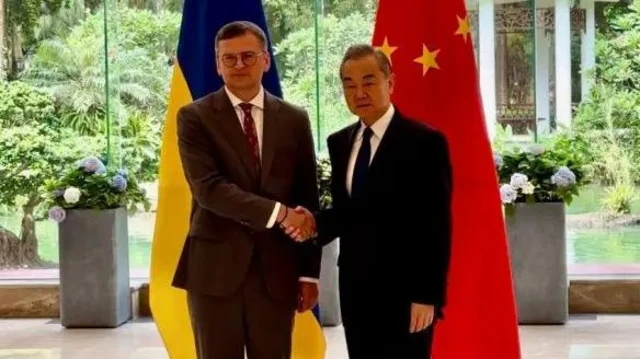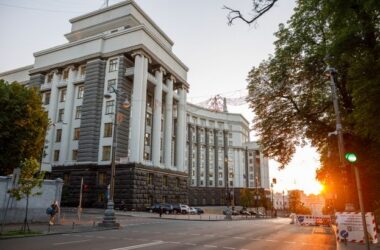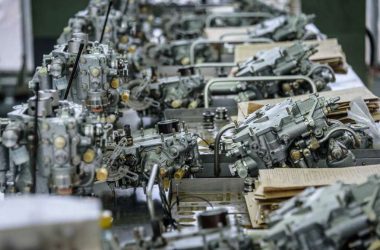The invitation to the Minister of Foreign Affairs of Ukraine, Dmytro Kuleba, to visit China sounded loud and unexpected. Back in June, the highest officials in Beijing skilfully avoided communications with representatives of Ukraine. Ambassador Pavlo Ryabikin directly complained about the silence of Beijing bureaucrats, the Chinese side did not agree to the visit of Deputy Minister Andrii Sybiga until the last moment, and the non-participation of Chinese diplomats in the Swiss Peace Summit was officially announced literally on the eve of the event. That is why the gates to the Celestial Empire were opened from the Chinese side for Dmytro Kuleba’s visit in July. On the website of the local Ministry of Foreign Affairs, a press release about Wang Yi’s meeting with Dmytro Kuleba was published without the characteristically Chinese style emphasized mention of the fact of the petition about the visit by the guest.
China’s sudden interest in communication with Ukraine does not at all indicate a change in its position regarding the “Ukrainian crisis”. In the read-out issued by the Chinese side following the meeting, traditional clichés used by Beijing were reproduced: about a political solution to the “Ukrainian crisis”, about China’s commitment to negotiations and about its “constructive role” in ending the war. In it, again, there is no mention either of supporting the territorial integrity of Ukraine, or of Russia’s responsibility for the war. China presents its position not as an individual one, but as a consensus, based on an understanding with Brazil and supported by the “international community”. All this is not in the press release of the Ministry of Foreign Affairs of Ukraine, published after the meeting, where the main narrative is a just peace ensured through President Zelenskyi’s formula, and Russia’s unscrupulous approach to negotiations. Although the texts of the Chinese Foreign Ministry are extremely rarely synchronized with the guests’ read-outs and are always performed in a specific manner, the total inconsistency of the comments of the parties regarding the results of the meeting is striking. Why then did China need this visit?
Old new danger
The incentive to initiate it was formed by events not in the capitals of Asia or Europe, but in North America, where the election campaign of candidates for the position of the president of the United States continues. The failure of Joe Biden at the debate, the shooting in Pennsylvania, the nominating conference of the Republican Party and the crisis in the Democratic camp formed a clear idea in China of the inevitability of Donald Trump’s return to power. The Chinese academic community woke up from its lethargy and began to actively predict the political typhoon that is coming if Trump returns to the White House (although today, after Biden’s refusal to participate in the race for the presidential seat and his passing of the “baton” to Kamala Harris, it is already clear that Trump’s victory is far from a fact). Despite the fact that the applied aspects of policy in the Chinese direction will largely be determined not so much by Trump himself, but by his advisers, whose names are not yet known, in China, invisible streams of analytical reports have already flowed from think tanks to the top on the entire spectrum of phobias related to by the restoration of the republicans.
The main opinion of Chinese visionaries from international relations revolves around the certainty that the diplomacy of the PRC, its political system and economic system will be at the point of attack of the new Trump administration. Intellectuals do not expect fine-tuned point sanctions, but the restoration of total tariff wars of the model of his previous term. Beijing’s ability to symmetrically defend itself will be quite limited, as trade between the countries has remained skewed in China’s favor.
A new trade war is brewing for China at an extremely inconvenient time. Its extensive growth model has hit the ceiling and needs a transition to a new quality that is fueled by private consumption rather than public investment. The “modernization of productive forces” that Xi Jinping often talks about now requires time, stability and painful reforms. The Communist Party is trying everything to support the high dynamism of growth rates, the main source of which today, as it was 20 years ago, is surplus foreign trade. The damage to exports, equivalent to a fifth of China’s GDP, has significant destabilizing potential. If there is no way to avoid it, in the Celestial Empire they would at least prefer to minimize losses.
Maneuver to protect against damage
The key role in securing the economy of the PRC belongs to Europe: it offers both a capacious market and a solvent demand for Chinese exports. Trade between the EU and China has also accumulated contradictions, so the European Commission is moving to protect its own markets from subsidized Chinese goods, primarily electric cars and solar panels. But if the conflict with Washington is seen in Beijing as an existential one, then it is believed that it is possible to come to an understanding with Brussels through bribery — the integration of European companies into Chinese value chains.
China is also very afraid that the Trump administration will be able, as it claims, to play the Russian card — to draw Moscow to its side, imposing peace on Ukraine at the expense of concessions on Russian terms. Then Beijing will also find itself
in the camp of those who lost as a result of the war. Despite the rhetoric of friendship and endless “deepening of partnership”, Xi Jinping prefers not to rely entirely on Vladimir Putin. Cooperation between autocrats is localized in the sphere of trade and diplomacy, military cooperation remains limited, and humanitarian and investment relations are decorative in nature, which indicates a component of mistrust in the relationship. In order to narrow Putin’s opportunities to flirt with the new American administration, Beijing is considering increasing its weight in solving the “Ukrainian issue.” This means creating conditions for the Kremlin in which it would not be able to finalize the outcome of the war without approval from Zhongnanhai.
Chinese scientists believe that the active involvement of the US in the Palestinian-Israeli war is also in the hands of the PRC. They interpret the European approach to the conflict region as aimed at distancing from the USA. Such a line is expected to facilitate the search for understanding between China and European countries.
In Chinese intellectual opinion, there is a somewhat simplistic idea that Europe can be separated from the United States and engaged on the side of China. They sense the uncertainty that grips European capitals as they contemplate the American race, as well as the desperation that the prospect of a Democratic loss engenders. In this sense, Trump’s victory seems to China not only a threat, but also a window of opportunity in the European direction. Disappointment with Trump’s tariff wars, which will surely affect not only China, but also the EU, and the destabilized structure of NATO, will fuel the Europeans’ anxiety and facilitate rapprochement. China will also find a reason to restart relations with Europe – next year will be the 50th anniversary of the establishment of China’s diplomatic mission to the EU (then still an economic community).
The meeting and dialogue with representatives of Ukraine, which almost every European leader asked Xi Jinping about and which he frankly ignored, can now become a powerful start for more substantive communication with Europeans. It is possible that Viktor Orbán, who offered himself in this capacity during a pseudo-peacemaking tour of the capitals of several influential countries, may be chosen as the person for communication, until Beijing is convinced that he looks marginal in the EU. More likely, China will try to construct several parallel tracks for the development of dialogue.
The messages and messengers that Kyiv will send, as before, will have little weight in the Chinese strategy. In the near future, Beijing will be interested in normalizing economic relations with Brussels as soon as possible, temporarily showing it openness to compromises on economic issues and concessions. And let “China’s position on the Ukrainian issue” is still declared by him as “consistent and clear”, but it will move more and more into the gray and vague zone of diplomatic disputes with the European Union on trade.







